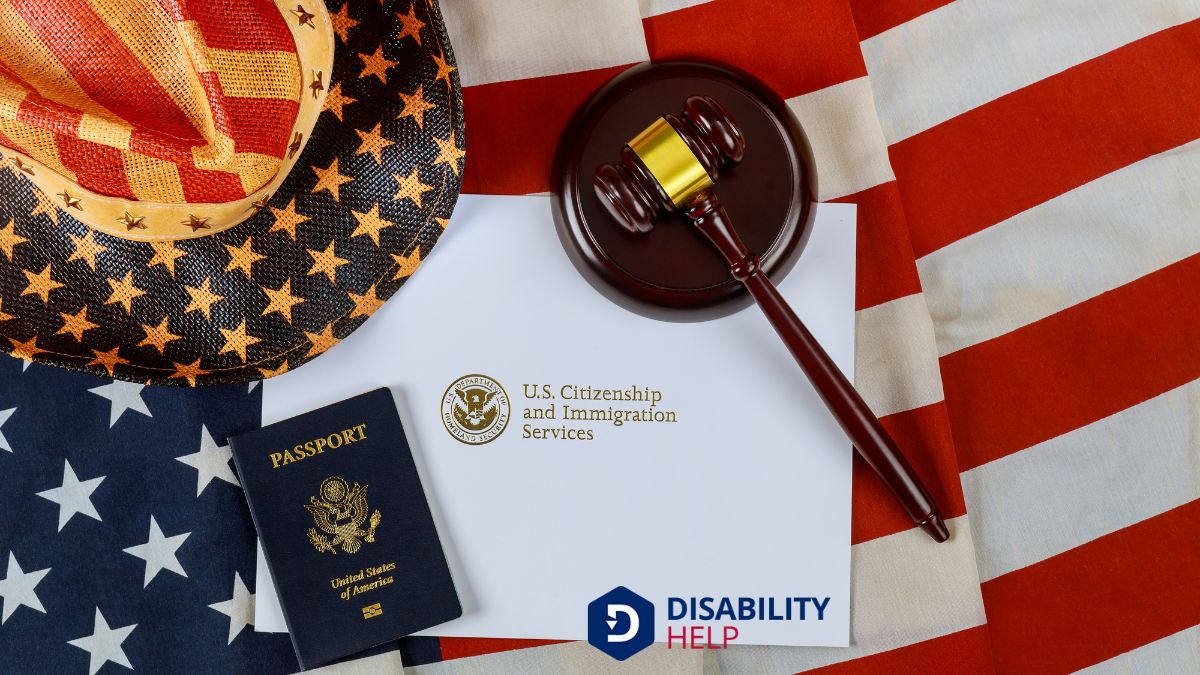Can we file a claim against a government entity? It’s a question many of us have pondered, especially when facing issues like personal injury or property damage caused by a government agencyThe capacity of individuals with disabilities to act independently and make their own choices.. While the concept of sovereign immunity can make this process seem intimidating, there are exceptions and specific procedures that allow us to pursue such claims. But how do we navigate these complexities and enhance our chances of success? Let's explore the steps involved.
Key Takeaways
- Government immunity may be waived, allowing claims for personal injury, property damage, or contract disputes.
- Filing a notice of claim with specific incident details is essential for pursuing action.
- Identify the correct government entity responsible for the issue to maximize claim success.
- Strict deadlines must be adhered to, or the right to file a claim may be lost.
- Legal assistance can guide through complex procedures and ensure correct documentation.
Understanding Sovereign Immunity

Although it may seem complex at first, understanding sovereign immunity is essential when considering a claim against a government entity. Sovereign immunity means the government is protected from being sued without its consent. It’s rooted in the idea that the state shouldn’t be disrupted by legal challenges unless it permits them.
This protection might feel like a barrier, but it's meant to maintain governmental functions without constant litigation threats.
We should know that there are exceptions. Governments sometimes waive this immunity through specific statutes, allowing us to bring claims under certain conditions.
Understanding these nuances helps us navigate our legal paths effectively. By recognizing when and how sovereign immunity applies, we can better assess our situations and decide our legal strategies wisely.
Types of Claims You Can File
When we're thinking about filing a claim against a government entity, it's important to know the types of claims we can pursue.
We might deal with personal injury if we've been harmed due to government negligenceA legal concept where a party fails to exercise reasonable care, resulting in harm to another person..., or property damage if our property is affected by their actions.
Additionally, contract dispute claims arise when there’s a disagreement over the terms or execution of a government contract.
Personal Injury Claims
If you're considering filing a personal injury claim against a government entity, it’s crucial to understand the types of claims you can pursue. We might deal with situations like slips and falls on government property, injuries caused by government vehicles, or harm due to negligence from government employees.
Each of these scenarios has specific legal nuances we must navigate.
The process typically involves filing a notice of claim within a strict timeframe, often shorter than other personal injury claims. We must gather evidence to support our claim, like medical records and witness statements, which can be challenging when dealing with governmental procedures.
Property Damage Claims
Property damage claims against a government entity can arise from various incidents, such as damage to your vehicle from poorly maintained roads or harm to your property due to construction work.
When we experience such issues, we may wonder how to address them effectively. Filing a claim involves understanding the process and knowing our rights. Here are key points to take into account:
- Documentation: Collect evidence such as photos, repair estimates, and reports to support our claim.
- Deadlines: Be aware of strict time limits for filing claims against government entities; missing them might forfeit our rights.
- Procedure: Each government entity may have unique procedures, so we should familiarize ourselves with specific requirements.
Contract Dispute Claims
While property damage claims focus on physical damage, contract dispute claims arise from breaches or disagreements over the terms of a contract with a government entity. These claims often occur when the government fails to fulfill its obligations, either by not delivering services or by delivering them inadequately.
We may face situations where payment terms aren't met, deadlines are ignored, or agreed-upon standards aren't upheld.
When pursuing a contract dispute claim, we should gather all relevant documents, such as the contract itself, correspondence, and any evidence of the breach.
It's essential to understand the specific procedures and deadlines required for filing claims against government bodies. By staying informed and organized, we can better navigate the complexities of resolving contract disputes with a government entity.
Determining the Appropriate Government Entity
How do we determine which government entity to target when filing a claim? First, we need to identify the specific branch or agency responsible for the issue at hand. This guarantees we address our claim to the correct party, maximizing our chance of success.
Here’s how we can pinpoint the right entity:
- Research the issue: Understand the problem's nature and the government level (local, state, or federal) involved.
- Identify the responsible agency: Find out which department or agency oversees the matter. This might require visiting official websites or making phone calls.
- Check for similar cases: Look for examples of similar claims to see which entity others targeted, guiding us in the right direction.
Filing a Notice of Claim
When we’re ready to file a notice of claim, understanding the process is essential, especially since missing filing deadlines can jeopardize our claim.
We'll need to gather the required documentation, which typically includes details about the incident and any damages incurred.
Let’s make certain we've everything in order to move forward confidently.
Notice of Claim Process
Filing a notice of claim is an essential first step when pursuing legal action against a government entity. It informs the agency of our intent to seek damages and outlines our grievances.
To successfully file, we must guarantee the notice includes specific details and follows particular protocols. Here’s what we need to focus on:
- Identify the Correct Entity: Make sure we’re addressing the right government agency that’s responsible for our claim.
- Detail the Incident: Clearly describe what happened, including dates, times, and any relevant circumstances leading to our claim.
- State the Damages: Specify the compensation we’re seeking and justify the amount with supporting evidence.
Filing Deadlines Importance
Understanding the importance of filing deadlines is essential when pursuing a claim against a government entity. We must recognize that these deadlines aren't mere formalities but vital steps in the process.
Missing a deadline can result in losing our right to seek justice, regardless of the claim's merit. Government entities often have specific time frames, sometimes as short as 30 to 90 days, to file a notice of claim.
It's imperative to act promptly and gather the necessary information to meet these deadlines. We should familiarize ourselves with the timelines relevant to our situation and guarantee we're prepared to submit our claims on time.
Let’s not overlook this imperative aspect, as it’s key to moving forward with our case.
Required Documentation Details
While preparing to file a notice of claim against a government entity, we must focus on gathering the right documentation to support our case.
This meticulous preparation sets the stage for a strong claim. We need to guarantee our documentation is thorough and precise since it plays an essential role in demonstrating the legitimacy of our claim.
Here’s what we should include:
- Detailed Account of the Incident: Clearly describe what happened, when, where, and who was involved.
- Relevant Evidence: Gather photos, videos, or other tangible evidence that supports our claim's narrative.
- Medical and Repair Bills: Provide any related expenses incurred as a result of the incident to quantify our claim.
Gathering Evidence and Documentation
When pursuing a claim against a government entity, gathering evidence and documentation is vital to building a strong case.
First, let's collect any records related to the incident, such as photographs, videos, and official reports. These items provide a clear picture of the event.
We should also gather witness statements, as firsthand accounts can strengthen our position.
Don’t forget to keep copies of all medical reports and bills if the claim involves injuries. Accurate documentation of expenses and damages is essential.
We need to make certain everything is well-organized, as this makes it easier to present our case.
By diligently compiling evidence, we increase our chances of a successful claim.
Let’s take the time to document everything thoroughly and accurately.
Navigating the Claims Process
With our evidence and documentation in hand, let's move forward to tackle the claims process. We need to follow specific steps to guarantee our claim is correctly filed and considered.
First, identify the government entity responsible for our issue. Each entity has its own procedures and timelines, so double-check their requirements.
Second, fill out the necessary forms accurately. Missing or incorrect information can delay or jeopardize our claim.
Finally, we will submit our claim within the deadline. Government entities often have strict timelines, and missing them could mean forfeiting the right to compensation.
Here's a quick checklist to guide us:
- Research: Find the appropriate government entity and understand their claims process.
- Accuracy: Guarantee all forms are complete and correct.
- Timeliness: Submit before the deadline.
Potential Challenges in Filing a Claim
Filing a claim against a government entity can present several challenges that we need to navigate carefully.
First, strict deadlines often come into play. We must adhere to specific timeframes, which, if missed, can result in losing our right to file.
Additionally, government entities usually have immunity from certain types of claims, meaning some actions we might consider valid may not be legally permissible. Understanding these exceptions can be confusing.
Moreover, the process typically requires detailed documentation and evidence that can be complex to compile.
We also need to be aware of potential bureaucratic red tape, which might cause delays or complications.
Seeking Legal Assistance

Although traversing the complexities of filing a claim against a government entity can be intimidating, seeking legal assistance is often a wise step to confirm that we don't overlook critical details.
Legal professionals can help us navigate the intricate process, assuring we adhere to specific deadlines and requirements. Their expertise can be invaluable in evaluating the strengths of our case and determining the best course of action.
Seeking legal help offers several benefits:
- Guidance and Expertise: Attorneys can explain complex legal jargon and procedures in understandable terms.
- Strategic Planning: They can help us develop an effective strategy tailored to our unique situation.
- Paperwork Management: Lawyers confirm all documents are correctly completed and submitted on time, reducing the risk of errors.
Conclusion
In summary, while filing a claim against a government entity can be challenging due to sovereign immunity, it’s not impossible. We’ve outlined the key steps: understanding the types of claims, identifying the right agency, and filing a detailed notice of claim. By gathering robust evidence and steering through the claims process carefully, we can enhance our chances of success. Remember, seeking legal assistance can also provide invaluable guidance to help us effectively pursue our claim.






